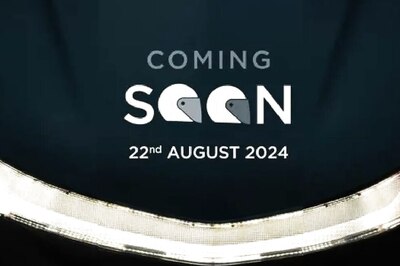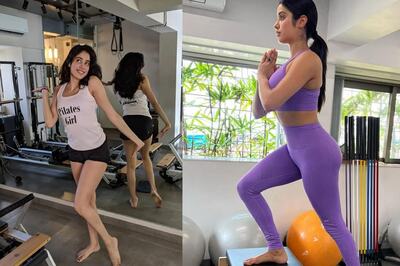
views
What is an awkward smile?
An awkward smile is an embarrassed or uncomfortable smile. Awkward smiles tend to look a bit unnatural, because they are, and are typically a nervous response in socially awkward situations. The attempt at a smile is a way of hiding discomfort and being polite, even in light of inappropriate or upsetting behavior. An awkward smile may come with other signs of trouble, like red cheeks and a slight turn of the head, hinting at disapproval. A 2005 study sought out 50 young women participants who believed they were there to be interviewed for a job. Among normal interview questions, inappropriate ones were scattered in, like, “Do you have a boyfriend?” Research found that the women were smiling awkwardly in return, trying to “grin and bear it” in order to land the job. Another study surveyed the smiles of 122 people, putting them into 5 different categories: amused, embarrassed, nervous, polite, and other. These findings revealed how awkward smiles stacked up against genuine smiles. As it turns out, awkward smiles tended to involve a more open mouth and lasted a shorter time.
Why People Smile Awkwardly
They’re responding to an awkward question. If you’ve ever been asked a personal question at work or been asked to spill all the juicy details about a personal situation by someone you barely know, then you may have involuntarily responded with an awkward smile yourself. When poked to react in social settings like this, our initial instinct might be to reply with a small, weary smile, secretly communicating, “Please don’t ask me that again.” Psychological reasons why people ask inappropriate questions range from harmless curiosity to malicious intent to make someone squirm.
They’re in an uncomfortable situation. This doesn’t necessarily have to be a bad thing! Some people are embarrassed by compliments, which could cause them to smile awkwardly in return while managing a “thank you.” Of course, there are some scenarios that are truly uncomfortable, like being harassed at the workplace or feeling forced to laugh at an inappropriate joke. Smiling awkwardly, like laughter at inappropriate times, is thought to be a result of unregulated emotions. When you’re overwhelmed, whether it be by happiness or sadness, your nervous system tries to regulate itself by drawing upon emotions from the opposite end of the spectrum.
They’re trying to be polite. It’s possible that the person isn’t feeling uncomfortable, but is simply trying to be polite in a situation they don’t fully understand. Maybe someone in the group made a niche joke that everyone else is laughing at, and they don’t want to feel left out, or maybe they’re trying to stay quiet if they feel they have little to contribute to the conversation. Whatever the reason, polite awkward smiles are a sign of of empathy toward others, although it can teeter on people-pleasing. Smiling awkwardly for the sake of being polite reflects some of the same symptoms behind people-pleasing, including not wanting to express criticism and conforming to certain behaviors in order to avoid conflict.
How to Fix an Awkward Smile
Practice smiling. In order to fix something, you must first understand where and how it’s broken; smiles are no different! So, stand in front of a mirror and make as many happy faces as you can muster. Although practicing a smile runs the risk of resulting in a rehearsed expression, the point of practicing is to gain control of all your facial muscles while testing out your best angles. After all, practice makes perfect! If you don’t want to use a mirror, you can also take inventory of your smiles by snapping selfies on your smartphone.
Do facial exercises. If you want to try smiling more naturally, especially if you’ve got a big photo op coming up, try doing facial exercises to prep. One such exercise involves you smiling as wide as possible for ten-second intervals, followed by the puckering of the lips. These movements should help loosen and relax the 42 muscles in the face, giving you a wider range of control over them. So, when it’s time to say “cheese,” you can feel your least awkward, most confident self. Repeat this exercise 10-15 times each day over the course of several days. If your cheeks begin to hurt, you’ll know you’re smiling as wide as you can. If they don’t hurt, try going a little wider.
Trick yourself into smiling. When you’re in front of a camera and desperately want to avoid a cringey forced smile, try thinking of something that brings you joy. This can be anything from your puppy to your favorite scene in a comedy film to the one time you won a trivia contest– any good memory or anecdote can do the job. Of course, this requires a bit of facial control no matter what as a sweet thought could still result in an awkward or accidentally goofy smile. Challenge yourself to think of things that make you truly want to laugh out loud. This way, your smile can be one of controlled laughter, which is often reflected in the eyes, as well, leading to a natural shot.
Make a really grumpy face first. This technique is one often employed by professional photographers. When asked to make a grumpy face, most people contort their faces into a tight frown which leads them to instinctively want to return to a more natural, relaxed and pleasant state. This is psychologically backed by the same science that causes us to want to smile or laugh when someone specifically tells us not to, and having the nervous giggles at inappropriate times. Like awkward smiles, nervous laughter is a way to emotionally protect ourselves from showing discomfort and feeling overwhelmed with social anxiety.
Trust the photographer. If you want to perfect your smile ahead of a professional shoot with a photographer, trust that you’ll be in good hands. Capturing your naturally dazzling smile is one of the photographer’s main objectives, as is generally painting you in an attractive light. Photographers have many tried and true methods of striking the right mood, which include telling jokes and playing music, all there to set you up for megawatt smile success. Photographers will often instruct you on what direction to face, where to turn your head, and what general movements to make in order to capture your most natural facial expressions.
Synonyms for Writers
Other ways to describe an awkward smile include “sheepish” and “wry.” In literature, characters are often described via facial features and expressions. An eternally optimistic character might be written as having a wide, pearly-white grin, while a deceitful character might be written as having a cunning smirk. Characters with awkward smiles tend to be placed in uncomfortable situations, or are generally considered to be insecure people. Here are some other literary ways of describing awkward smiles: ”Sheepish smile” ”Wry smile” ”Abashed smile” ”Bashful smile” ”Cringey smile” ”Gawky smile” ”Goofy smile” ”Feigned smile” ”Fake smile” ”Contrived smile” ”Phony smile” ”Insecure smile” ”Self-conscious smile” ”Pretend smile”




















Comments
0 comment